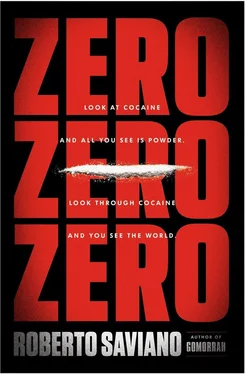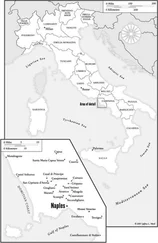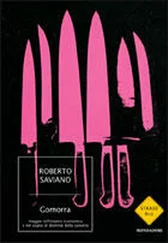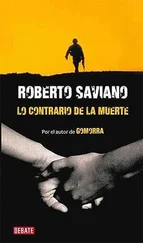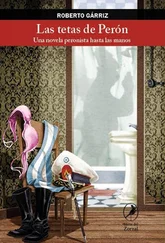On the morning of November 6, 1984, 450 Mexican soldiers invaded El Búfalo. Helicopters rained down soldiers, who ripped up marijuana plants and seized what had already been harvested, entire bales ready for drying and chopping. Between what was sequestered and what was burned, $8 billion worth of weed went up in smoke. El Búfalo and all its plantings were under the control of Rafael Caro Quintero’s clan, and it operated with the full protection of the police and army: The ranch was vast and was the main economic resource of the area. Everybody profited from El Búfalo. Caro Quintero couldn’t believe that with all the money he’d invested to oil the machine, to bribe the police and the army, a military operation of this scale could have escaped his notice. Even the military planes in the area would notify him before taking off, ask his authorization. No one could understand what happened. The Mexicans must have been pressured by the Americans. The DEA, the U.S. Drug Enforcement Administration, must have stuck its nose in El Búfalo business.
Caro Quintero and El Padrino were alarmed. The two shared a deep trust; they cofounded the organization that held the monopoly on drug trafficking in Mexico. They asked everyone who worked for them, at every level, to investigate everyone in their pay. Because they should have known about the raid in advance. Normally they were warned if the authorities were going to strike, and they themselves would make sure some drugs were found. A good amount, if the police officer responsible had news cameras with him, or needed to climb the ranks. A little less if he wasn’t one of their men. Kiki talked with everyone, with Don Neto, with El Padrino’s political cronies. He wanted to sound them out, figure out what the cartel aristocracy’s next move would be.
One day he was on his way to see his wife, Mika; they didn’t meet for lunch very often, only when Kiki was serene and not too swamped with work. They would meet somewhere far from his office, in one of the nicer neighborhoods of Guadalajara.
Kiki put his badge and pistol in a drawer, left his room, and stepped outside. He went over to his pickup, and five men, three near the engine and two near the bed, pointed pistols at him. Kiki raised his hands, tried to recognize the faces of the men threatening him. He was loaded into a beige Volkswagen Atlantic. His wife was waiting for him, and when he didn’t show, she called his office. Kiki was taken to Lope de Vega Street. He knew the house well, two stories, with a veranda and a tennis court. It belonged to one of El Padrino’s men. He’d been found out. Because Kiki wasn’t the umpteenth Mexican police officer in the pay of the drug lords, he wasn’t an extremely talented but corrupt cop who had become El Padrino’s alchemist. Kiki was with the DEA.
His real name was Enrique Camarena Salazar. An American of Mexican origins, he’d joined the DEA in 1974. He started working in California and then was sent to the Guadalajara branch. For four years Kiki Camarena mapped the country’s major cocaine and marijuana trafficking networks. He got to thinking about infiltrating, because police operations were merely arresting campesinos, dealers, drivers, killers, little guys, when the real problem was elsewhere. He wanted to get beyond the mechanism of big arrests, spectacular in terms of numbers but insignificant in terms of importance. Between 1974 and 1976, when a joint task force of the DEA and Mexico set out to eradicate opium production from the mountains of Sinaloa, there were four thousand arrests, all growers and transporters. But if you didn’t arrest the bosses, if you didn’t arrest the people pulling the strings of the whole operation, the organization was destined to live forever, to regenerate continuously. Kiki was trying to penetrate deeper and deeper into the Golden Triangle — the states of Sinaloa, Durango, and Chihuahua — a vast marijuana and opium production area. Kiki’s mother was against the idea. She wasn’t happy about his work, didn’t want her son taking on the world’s drug kingpins all by himself. But Kiki simply said, “Even though I’m just one person, I can make a difference.” That was his philosophy. And it was true. But they betrayed him. Very few people knew about the operation, and one of those very few had talked. His kidnappers took him into a room and began torturing him. They had to do an exemplary job. No one was ever to forget how Kiki Camarena was punished for his betrayal. So they recorded it all on tape, because they needed to prove to El Padrino that they had done everything possible to make Kiki spill what he knew. They wanted every word he uttered as he was beaten and tortured to be recorded, so they could catch every clue, even the most insignificant shred of information. At that point anything could turn out to be useful. They wanted to know how much Kiki had already talked and who the other members of his team were. They started with slaps in the face and punches to his Adam’s apple, to take his breath away. They blindfolded him, tied his hands, and then broke his nose and the bone above his eyes. When he lost consciousness his torturers called a doctor. They washed the blood off and splashed ice water on him, until he came to. Kiki wept from the pain. But he didn’t talk. They asked how the DEA got its information, who gave it to them. They wanted names. But there were no names. They didn’t believe him. They tied electric wires to his testicles and started giving him shocks. The tape records screams and thuds, as his body was hurled in the air by the electric current. Then, Kiki’s hands and feet tied to a chair, one of his torturers placed a screw on his head and began turning. The screw entered his skull, piercing flesh and bone, the pain was excruciating. Kiki merely repeated, “Leave my family alone.” “Please, don’t hurt my family.” At every slap, every extracted tooth, every electric shock, the pain was made worse by the thought that it would be multiplied on Mika, Enrique, Daniel, and Erik, his wife and three children. It’s the thing he repeats most often on the tape. No matter what sort of relationship you have with your family, when you know they might pay for something you’ve done, the pain becomes unbearable, as does the thought that someone else will suffer because of you, for a choice you made.
When pain takes hold of your body it generates reactions that are unexpected, unthinkable. You don’t produce some huge lie in the hope that it will end, because you fear you’ll be found out and the pain will come back, even more agonizing this time, if such a thing is even possible. Pain makes you say exactly what your torturers want to know. But the most unbearable thing that happens when the pain becomes intolerable is the complete loss of psychological orientation. You’re on the floor, in a pool of your own blood and piss and drool, your bones broken, and despite all this — you don’t have any choice — you continue to place your trust in them. To trust their logic, their nonexistent pity. The pain makes you lose all judgment, makes you blurt out your deepest fears. It makes you beg for mercy, above all for your family. How could you possibly think that someone capable of burning your testicles or screwing a piece of metal into your head would heed your prayers to spare your family? But Kiki begged anyway, unable to gauge the rest. How could he imagine that his prayers were feeding their hunger for revenge, their savagery?
They broke his ribs. At a certain point on the tape you hear him ask, “Could you bandage them for me, please?” His ribs had pierced his lungs, and it felt like crystal shards were slicing his flesh. One of his torturers lit some charcoal, like they were going to grill a steak. They heated a rod until it was red hot, and then stuck it up his rectum. They raped him with a boiling hot rod. His screams are impossible to listen to; no one can keep from turning off the recorder, from walking out of the room where the tape is played. Whenever Kiki’s story is told there’s always someone who recalls that the judges who listened to those tapes couldn’t sleep for weeks. They tell about the policemen who vomited when they had to draft the report on those nine hours of tapes. Others would weep as they wrote, or plug their ears and shout, “Enough!!!!” They tortured Kiki, all the while asking how he arranged it all. Asking for names, addresses, bank accounts. But Kiki was the only one. He had organized the infiltration all by himself, with the consent of a few of his supervisors and the help of a small support unit in Mexico. That was the strength of his undercover operation — he operated alone. But those few — very few — Mexican police officers who knew about it, who’d been tried and tested with years of experience, they sold themselves. They sold out to Caro Quintero.
Читать дальше
